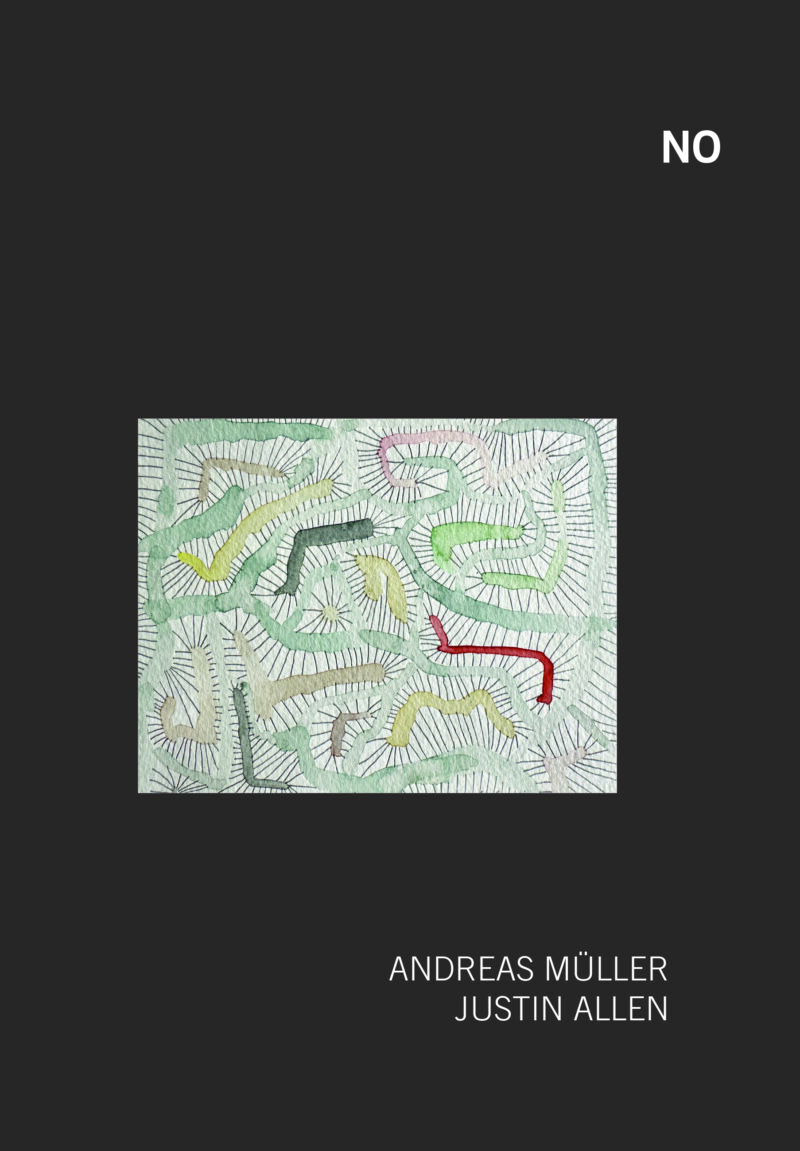NO (3RD BOOK), BOOK, STUTTGART, Germany, 2024
SHORT TEXT by JUSTIN ALLEN
“No” is the final, and perhaps most perplexing, chapter in the “No-Point” trilogy. If “No-Point Perspective” was the encyclopedia of nothingness for dummies and “No-Point” the professional’s handbook, then “No” is the blank page at the end, the echo of a conversation that has finally run its course.
Justin Allen and Andreas Müller, having exhausted all avenues of inquiry, meet face-to-face in Andreas’ quaint village. The words dwindle, the silences grow longer, and the “no-point” reveals itself not as a concept to be grasped, but as what’s apparently happening – life.
With its minimalist title and even more minimalist content, “No” is a book that defies categorization. It’s not about non-duality, it’s not about spirituality, it’s not even about nothing. It’s simply “No,” the final reduction of the original title of this trilogy.
A fitting conclusion to a series of talks that started with a grand exploration and ended with a whisper, “No” invites you to step off the precipice of meaning and into the vast openness of what is.
LINK TO ORDER BOOK:
EUROPE/DE:
https://buchshop.bod.de/no-andreas-mueller-9783769312874
USA/INTERNATIONAL:
PREFACE:
This is the final installment in our trilogy of talks about nothing. Or, more accurately, talks that circle around the “no-point,” the elusive space where words and concepts dissolve. If the first book, “No-Point Perspective,” (2020) laid out the vast landscape of this terrain, and the second, “No-Point,” (2022) narrowed the focus (not really), then this one, “No- or No-(Yes),” is a pinprick of light, a whisper in the nothingness.
We’ve gone from fourteen talks to seven, and now to a mere three and a half (or maybe four, depending on how you count). We’ve moved from the disembodied realm of Skype and telephone to the tangible presence of Andreas’ village, a place where the rolling hills and quaint houses seem to reflect the ordinary we’re pointing towards.
Face to face, I found myself running out of things to say. The words that flowed so freely in previous conversations seemed to stumble and fall silent in the face of the actual. And yet, in that silence, something shifted. The “no-point” wasn’t just an idea anymore, it was the air we breathed, the space between us.
Even the title of this book became a point of contention, a playful dance around the edges of meaning. “No” seemed too absolute, too one-sided. “No-(Yes)” hinted at the paradox, the refusal to settle on any fixed position. But in the end, we circled back to the simplicity of “No.” Not as a negation, but as a disregard to meaning or point, other than to follow the natural course of subtracting from our original title – No-Point Perspective.
This is not a book to be understood, it can’t be. It’s a final bow, a gentle nudge towards the precipice of the “no-point.” And then, a step off.
